What Are God’s Holy Days And Why Are They Important?

If you had asked me what God’s Holy Days were just three years ago, I would’ve had to think for a bit and probably would’ve said Easter and Christmas. I had of course, heard of Passover and Hanukkah but probably would not have labeled them as God’s Holy Days because I knew nothing about them and didn’t celebrate them. I might have labeled them as Jewish Holy Days. Well, I have learned a lot in the past three years, including what is meant by God’s Holy Days. When I did learn about them, I was astounded that I had never been taught about them before. Well, needless to say, learning about them has literally changed my life. I now observe and keep God’s Holy Days and now realize their importance and significance. It has been such an enlightening and awesome journey researching and discovering God’s Doly Days. I hope you too, find meaning and joy in learning about them! Let’s start from the beginning!
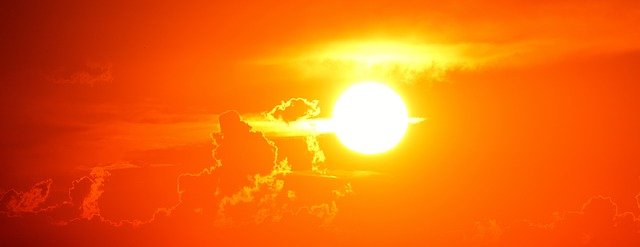
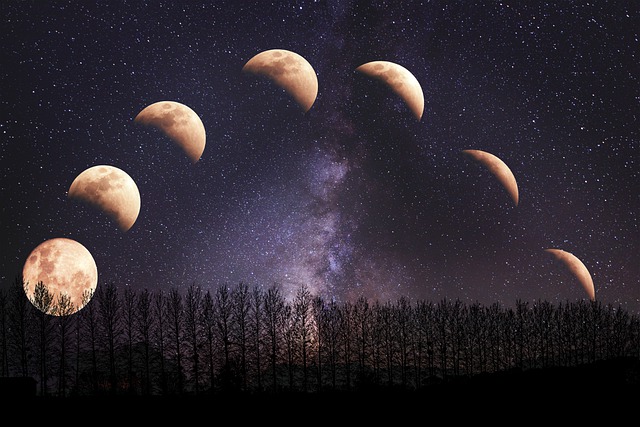
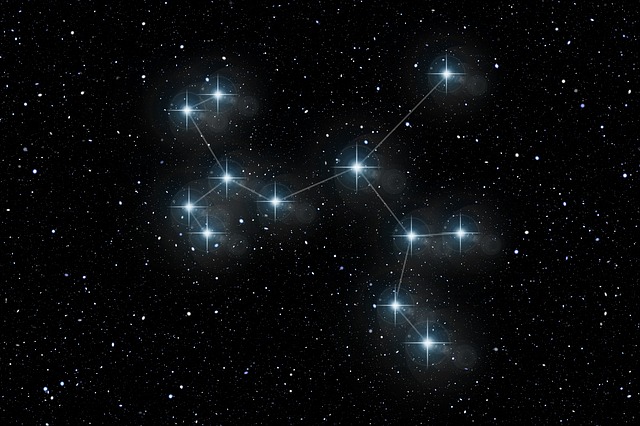
Gen. 1:14 Then God said, “Let there be lights in the firmament of the heavens to divide the day from the night; and let them be for signs and seasons, and for days and years;
NKJV
The lights in the heavens were given to man to tell time (days, months and years) and to be markers for specific events in history (signs). They were also to mark seasons. The words “seasons” is not referring to Spring, Summer, Fall and Winter. The Hebrew word for “seasons” is mo’edim, which means: “to keep an appointment” or “appointed times.” What is God referring to with keeping appointed times? Let’s research a bit further.

Lev. 23:1-2 And the LORD spoke to Moses, saying, “Speak to the children of Israel, and say to them: ‘The feasts of the LORD, which you shall proclaim to be holy convocations, these are My feasts.
NKJV
The word feasts in Hebrew is mo’ed derived from mo’edim and also means appointed times. These feasts or appointed times shall be holy convocations. Holy convocations means a holy assembly of people; a rehearsal.
In other words, the feasts of Yehovah were appointed times of worship for Israel that would serve as “dress rehearsals” in God’s prophetic calendar throughout history. Also note that God says the feasts are His Holy Days. They are not Jewish Holy Days. They were given to Israel and if we are to be grafted into Israel and become the children of God, His people, then we must come to know these appointed times that God has asked us to keep.

After verse 2 in Leviticus 23, God told Moses what His feasts were and that they were all to be holy convocations. The rest of the chapter explains these feasts which are the weekly Sabbath, Passover and the Feast of Unleavened Bread, First Fruits, The Feast of Weeks (Pentecost), the Feast of Trumpets, The Day of Atonement and the Feast of Tabernacles.
These feasts are not just part of the heritage of Israel, but also hold significant symbolic meaning. These seven feasts represent and typify the sequence, timing, and significance of the major events of Yeshua’s redemptive career. They are for us to know about what will happen in the future concerning Yeshua and how God will reveal His great purpose of eternal life for humanity. These seven feasts were divided into the Spring Feasts and the Fall Feasts. The number “seven” is symbolic of completion and perfection.
The Spring Feasts were fulfilled at Yeshua’s first coming. He came first as the Suffering Servant and the Paschal Lamb. The Spring Feasts revolve around words that begin with the prefix re- such as redemption, resurrection, renewal, rebirth, release, repentance, restoration and reconciliation to name a few. Yeshua was our redeemer. The Spring Feasts are also during the time of Spring planting and the Earth being renewed with new growth and life. This is symbolic of how Yeshua’s atonement brings release from sin and death to all mankind. These Holy Days are also mercy oriented because Yeshua’s first coming was all about mercy to mankind through His sacrifice for us. If we choose to follow Yeshua and accept Him as our Savior then we can be renewed spiritually through Him.
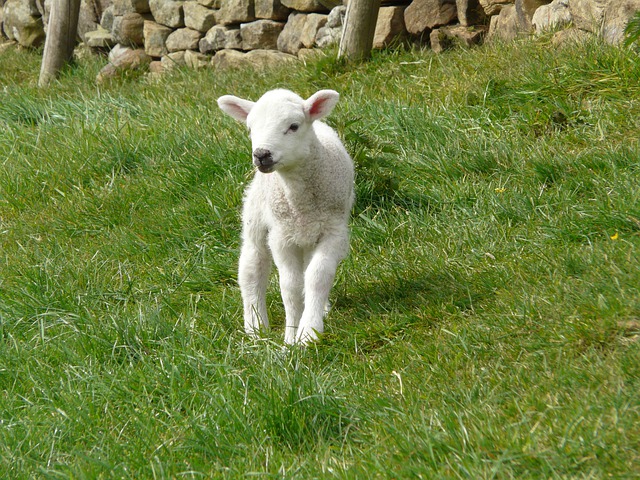
| English Names | Hebrew Names | Date | Ancient Israel | Yeshua’s Mission |
| Passover | Pesach | Month of the Abib-1st Hebrew month–Nisan 14 (March/April) | Blood of unblemished lamb smeared over doors | Yeshua’s Blood Atonement |
| Feast of Unleavened Bread (observed with Passover) | Hag HaMatzah | Month of the Abib-1st Hebrew month–Nisan 15-21 (March/April) | Eating unleavened bread in haste of leaving Egypt behind | Burial of Sin |
| First Fruits | Bikkurim | Month of the Abib-1st Hebrew month–1st Weekly Sabbath after Feast of Unleavened Bread begins (March/April) | Baptism through the Red Sea emerging a new nation to God | Resurrection |
| Feast of Weeks (Pentecost) | Shavuot | 3rd Hebrew month-Sivan 6-count 50 days beginning on First Fruits (May/June) | Receiving God’s Law at Mt. Sinai | Receiving the Holy Spirit; taking God’s law to the Gentiles |

The Summer time is also symbolic even though there are no Holy Days that occur during this time. It is a time of laboring in the fields and preparing for the final harvest. This is symbolic of the time of 2,000 years where the Gospel is taken to the Gentiles. In the Bible it is referred to as The Time of the Gentiles. This is the time when we are to prepare by coming to know God and Yeshua through the word and repenting and sharing the good news of the Gospel with others. This is the time of preparing ourselves spiritually to meet Yeshua when He comes again at His second coming.
The Fall Feasts will be fulfilled at Yeshua’s second coming. He will come as the Conquering King in great glory this time. These feasts revolve around the theme of justice and judgement. They occur in the Fall or final time of harvesting. It will be a time of spiritual harvesting and separating the wheat from the tares. Once this occurs then comes God’s judgement. Those who followed His Word will be saved and caught up with Yeshua for the marriage supper and those who did not follow His word will drink the bitter cup of God’s wrath. Yeshua will then reign for a thousand years with those who were found ready for His second coming.
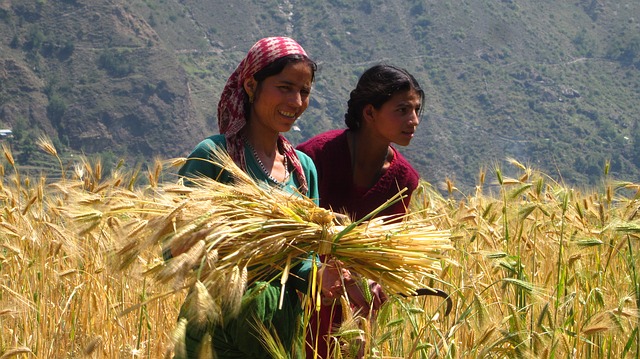
| English Names | Hebrew Names | Date | Ancient Israel | Yeshua’s Mission |
| Feast of Trumpets | Yom Teruah | 7th Hebrew month–Tishri 1 (September) | At the end of 40 years of wandering, they took down the walls of Jericho with blasts of the shofars. | Call to Repentance |
| Day of Atonement | Yom Kippur | 7th Hebrew month–Tishri 10 (September/October) | Israel redeemed from disobedient generation before; allowed to enter the Promised Land | Redemption; Separation of wheat and tares (last harvest); Judgement |
| Feast of Tabernacles | Sukkot | 7th Hebrew month–Tishri 15 (September/October) | After living in tents in the wilderness for 40 years, the Israelites entered the Promised Land and rejoiced | Yeshua’s millenial reign; Rest and rejoicing in the Promised Land |
Four of God’s Holy Days required all Israelite males to go up to Jerusalem to celebrate. These four feasts were Passover/The Feast of Unleavened Bread, The Feast of Weeks, and the Feast of Tabernacles. It is important to realize that today we cannot realistically do this. Also God’s temple in Jerusalem was destroyed back around 70 A.D. so there is no place to perform the sacrifices that these feasts require. Besides remember what Yeshua told the woman at the well?
John 4:21-24 Jesus said to her, “Woman, believe Me, the hour is coming when you will neither on this mountain, nor in Jerusalem, worship the Father. You worship what you do not know; we know what we worship, for salvation is of the Jews. But the hour is coming, and now is, when the true worshipers will worship the Father in spirit and truth; for the Father is seeking such to worship Him. God is Spirit, and those who worship Him must worship in spirit and truth.”
NKJV
He told her that the day was coming when people would not be traveling to Jerusalem to worship God by keeping His Holy Days but that we would worship in spirit and truth. Basically it is impossible to keep these feasts as Biblically required, however, today we still celebrate them in spirit and keep them as a memorial. We remember and keep them in order to remember what was done for us spiritually speaking and to prepare us for Yeshua’s second coming. We also keep God’s Holy Days because God commanded us to keep them through all our generations.

Ex. 12:14 ‘So this day shall be to you a memorial; and you shall keep it as a feast to the LORD throughout your generations. You shall keep it as a feast by an everlasting ordinance.
NKJV
Ex. 12:42 It is a night of solemn observance to the LORD for bringing them out of the land of Egypt. This is that night of the LORD, a solemn observance for all the children of Israel throughout their generations.
NKJV
Lev. 23:14 You shall eat neither bread nor parched grain nor fresh grain until the same day that you have brought an offering to your God; it shall be a statute forever throughout your generations in all your dwellings.
NKJV
Lev. 23:21 And you shall proclaim on the same day that it is a holy convocation to you. You shall do no customary work on it. It shall be a statute forever in all your dwellings throughout your generations.
NKJV
Lev. 23:41 You shall keep it as a feast to the LORD for seven days in the year. It shall be a statute forever in your generations. You shall celebrate it in the seventh month.
NKJV
Another important reason for keeping God’s Holy Days is because Yeshua kept them and if we claim to be His followers then we should follow what He did. There is a lot of evidence in the New Testament that Yeshua kept God’s Holy Days.
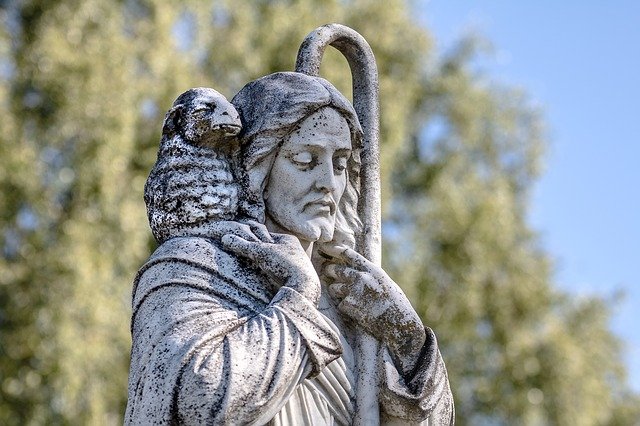
John 2:13 Now the Passover of the Jews was at hand, and Jesus went up to Jerusalem.
NKJV
Luke 2:41-42 His parents went to Jerusalem every year at the Feast of the Passover. And when He was twelve years old, they went up to Jerusalem according to the custom of the feast.
NKJV
Mark 14:1 After two days it was the Passover and the Feast of Unleavened Bread. And the chief priests and the scribes sought how they might take Him by trickery and put Him to death.
NKJV
Acts 2:1-4 When the Day of Pentecost had fully come, they were all with one accord in one place. And suddenly there came a sound from heaven, as of a rushing mighty wind, and it filled the whole house where they were sitting. Then there appeared to them divided tongues, as of fire, and one sat upon each of them. And they were all filled with the Holy Spirit and began to speak with other tongues, as the Spirit gave them utterance.
NKJV
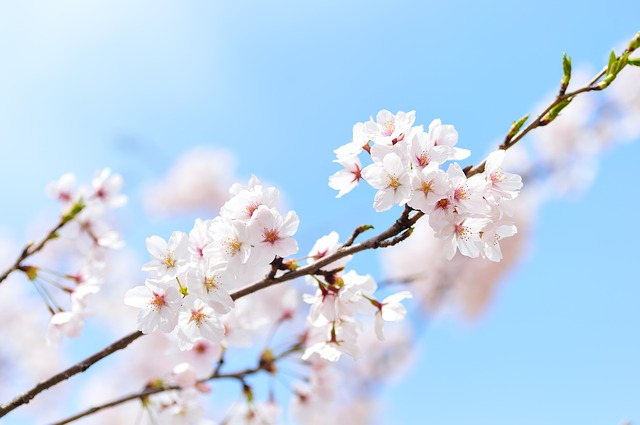
There are many more scriptural references but I will get into a deeper discussion about them when I talk about each Holy Day specifically in my future blog posts. I will be explaining the Spring Feasts or Holy Days next time, so hopefully you will visit my blog for the next post. Until then, I wish you the best!